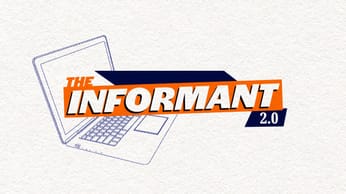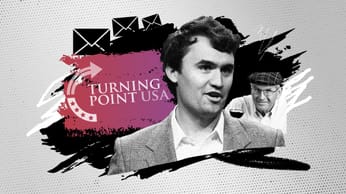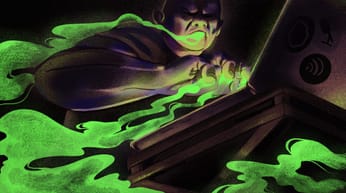
Facebook versus the boogaloo
Facebook watched for months as the "boogaloo" movement thrived on its platforms, but now things finally appear to be changing.
Hi, and welcome to The Informant, a publication covering hate and extremism in America, written and edited by me, Nick R. Martin.
Hundreds of you are new here, and you subscribed after seeing Congressman Paul Gosar, Republican of Arizona, calling me “an enemy of the people” this weekend. The reason? I noted on Twitter that he was photographed with a member of the Proud Boys, a known hate group, on the 4th of July. Thank you to everyone who showed me support in the face of the congressman’s attack. It means a lot.
The Informant is usually published once or twice a week. If you like what you read, please share it with a friend or colleague and tell them to sign up.
Facebook versus the boogaloo

Federal court records unsealed last month in Northern California demonstrate just how high the stakes are for Facebook when it comes to policing hate and extremism on its platforms.
The records show that two men, Steven Carrillo and Robert Justus Jr., met in a Facebook group in late May and began discussing how to use the ongoing Black Lives Matter protests to spark a violent civil uprising on behalf of the so-called “boogaloo” movement, which is based around the idea that a second Civil War (aka “Civil War 2: Electric Boogaloo”) is coming to the United States. They met in person the next day, drove to the protests in Oakland, California, and allegedly carried out the shooting of two security guards at the nearby federal courthouse, killing one of the guards. Eight days later, Carrillo, on his own, allegedly shot two Santa Cruz County sheriff’s deputies, killing one, in an ambush-style attack before being arrested.
By the time of the killings, researchers had been alerting the public for months that the emerging boogaloo movement was using platforms like Facebook and Instagram to recruit and spread. A February report by the Network Contagion Research Institute, for instance, mapped out how the extremist movement was “metastasiz(ing)” on Facebook and elsewhere and how it was targeting members of the military for recruitment. (Carrillo is an Air Force sergeant.)
In the meantime, Facebook struggled to keep up with the growing threat. The company took smaller actions against the subculture, removing posts that called for violence and making it harder to find boogaloo content on Facebook as well as on Instagram, which the company owns.
But despite the early warnings, it wasn’t until last week — weeks after the killings — that the company finally brought the hammer down. Or at least somewhat.
The social media giant announced on June 30 that it was banning hundreds of accounts and groups associated with boogaloo adherents as part of what it called a “strategic network disruption.”
The company said it removed 220 Facebook accounts, 28 pages and 106 groups as well as 95 Instagram accounts that were associated with a violent sector of the movement. In addition to that, the company removed another 400 groups and 100 pages that it said had posted similar content.
The move represented what the company believes is one of the most aggressive and sweeping crackdowns on the internet. Facebook said it had been investigating the network for months.
For comparison, the Tech Transparency Project reported in April it had identified 125 Facebook groups focused on the boogaloo with more than 72,000 members total.
Despite the numbers, the actions taken by Facebook were somewhat opaque.
The company didn’t specify which accounts and groups it nuked, and its description of them was vague, labeling the accounts only as comprising “a violent US-based anti-government network.” Facebook also stopped short of banning the entire boogaloo movement, making a distinction between this particular subset and the broader movement.
Some of the opaqueness was also due at least in part to the nature of the boogaloo subculture, which outside observers and even some of its own adherents have a hard time fully grasping. (For a good, nuanced look at what the movement is and isn’t, read this Bellingcat piece by journalists Robert Evans and Jason Wilson.) A kind of modern offshoot of the anti-government “patriot” movement, the boogaloo cause is awash in memes and inside jokes. Complicating the matter further, some adherents reject calls to violence even while embracing a term that invokes a coming Civil War.
Despite the baked-in ambiguity, Facebook made a major PR push in conjunction with its announcement, holding a conference call with journalists who cover technology and extremism (including me) as well as a separate call with researchers and analysts who have been sounding the alarm about how extremists use the platform to organize and recruit.
On Wednesday, I spoke with Megan Squire, a professor of computer science at Elon University who has tracked the boogaloo movement on Facebook and who took part in the researcher call. Squire was invited because of her role with the Center for Analysis of the Radical Right.
She said it’s positive Facebook took action in this case but that the company still has a long way to go to root out extremists from its platform.
“They're evolving their viewpoints here,” Squire said, “but they don't need to be giving themselves fairly huge pats in the back.”
She pointed to white nationalist groups, including at least one that helped organize the deadly 2017 “Unite the Right” rally in Charlottesville, Virginia, that have a continuing presence on the platform.
“Facebook showed yesterday that they have the ability to build out one of these networks and disrupt it,” Squire said.
Facebook’s move, although months in the making, also came at a time when it is facing a major advertiser boycott, called “Stop Hate For Profit,” which is being led by civil rights groups like the NAACP and the Anti-Defamation League. Major brands like Coca-Cola and Unilever have joined the boycott along with hundreds of other companies.
A Facebook spokesperson told me on Monday the timing of the announcement last week was coincidental. But organizers of the boycott were skeptical of the actions, and the announcement did little if anything to dissuade advertisers from jumping ship. Many signed onto the boycott even after the announcement.
One of the organizers, Sleeping Giants, posted this scathing tweet following the announcement:
This is @Facebook trying to get credit for the things they should be doing anyway to try to placate advertisers taking part in #StopHateForProfit.
— Sleeping Giants (@slpng_giants) 11:26 PM ∙ Jun 30, 2020
The only thing that counts is real, systemic change around enforcement of their policies and they’re not doing it.
Oren Segal, vice president of the ADL’s Center on Extremism, told me in a text message that context matters here.
“Real questions remain about what Facebook will do when similar content returns or what it will do about all the other extremism and hate currently on the platform,” Segal said. “Stop Hate for Profit shows that advertisers are asking some of the same questions.”
On Monday, the Facebook spokesperson also confirmed to me that the company’s founder, Mark Zuckerberg, planned to meet with organizers of the boycott. Multiple news outlets reported that meeting is set to take place today.
The spokesperson also released this statement:
“We share the goal of these organizations; we don’t benefit from hate and we don't want it on our platforms. We look forward to hearing directly from these organizations, and to sharing an update on the investments we've made and the work we’re continuing to do.”
Still, organizations like the ADL showed no signs of letting up its pressure on Facebook. A day after the boogaloo announcement, the civil rights organization published a report highlighting hate lurking on the social media platform.
The headline of the report: “Facebook Has a Holocaust Denial Problem.”
Like The Informant and want to help make it even better? Give me feedback, point out factual errors or typos, or send me news tips. Reach me at nick@informant.news.
Subscribe to The Informant to receive the latest updates.






